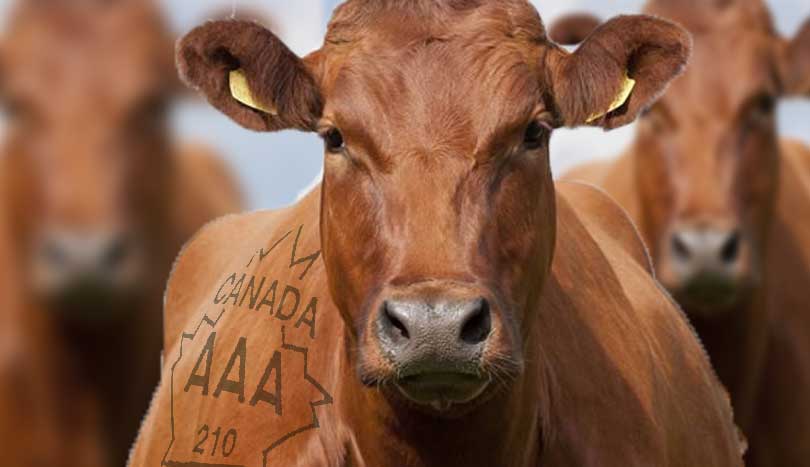CHARLEBOIS: Trump’s beef with prices and why Canada could get burned

Despite being a major beef-producing nation, Canada consistently pays more than the United States
U.S. President Donald Trump promised Americans cheaper steaks by saying he’s ready to buy beef from Argentina. It was a classic populist flourish — short on economics, long on optics. But beneath the campaign-style rhetoric lies a deeper story: How global beef politics are shifting, and how Canada could quietly become a price-taker in its own market.
Canadian grocery stores are already feeling the effects of global beef trade realignment. Imports from Mexico and Australia have surged, often appearing on shelves at surprisingly low prices. Some Australian cuts now retail for less in Canada than they do in Australia itself — a curious signal of how aggressively exporters are chasing market share in North America. Mexican beef, too, has become more visible in our meat aisles, thanks to integrated supply chains and favourable trade rules.
Canadians pay high prices
Meanwhile, Canadian consumers continue to pay some of the highest beef prices in the Western world. Since January, certain cuts have climbed between 20 and 50%, depending on the province and product. Despite being a major beef-producing nation, Canada consistently pays more than the United States. The reasons are structural: Smaller market scale, higher transportation costs, and a retail landscape dominated by a few powerful grocers.
Adding to the tension, the federal government recently announced that Canada will export more beef to Mexico — a move that may bolster trade numbers but could tighten domestic supply, pushing retail prices even higher at home.
South of the border, the supply crunch is worse. The U.S. cattle herd is at its smallest in decades, while a screwworm outbreak in parts of Mexico and the southern United States has disrupted production. These biological and logistical challenges could take years to resolve, meaning beef prices are likely to remain elevated until at least 2027 — both in the United States and in Canada, where our markets are deeply intertwined.
Perception can move markets
Against that backdrop, importing more beef into the U.S. from Argentina is less an economic strategy than a symbolic gesture. Argentina currently ships about 20,000 tonnes of beef to the U.S. each year, compared with more than 12 million tonnes of domestic production. Even if imports doubled, the impact on retail prices would be negligible.
Still, perception can move markets. The mere suggestion that Washington is acting to lower prices might nudge wholesale prices down temporarily. Yet, this comes with political risk. U.S. ranchers — particularly groups like R-CALF USA and the National Cattlemen’s Beef Association — view such moves as a betrayal, arguing that imported beef undercuts domestic producers and dilutes the “Product of USA” label.
For Canada, there’s another, largely hidden, layer to this story: The extraordinary concentration of power among private beef packers. Two companies — JBS and Cargill — dominate beef processing across North America. Both are privately owned and therefore under no obligation to publish detailed financial results. That opacity leaves consumers, producers and policymakers guessing at how much profit is being extracted from the system, especially during price spikes.
Price-fixing lawsuits
The White House has tried to rein in these firms before. Over the past few years, it has launched lawsuits alleging price-fixing and anti-competitive behaviour in the meat-packing sector. Several companies quietly paid settlements to avoid lengthy court battles — an implicit acknowledgment that the system lacks transparency and competition.
In this environment, populist fixes like Trump’s Argentine beef idea barely scratch the surface. The real issue is structural: A market dominated by a few opaque, privately held corporations with disproportionate influence over what farmers earn and what consumers pay.
As for Canada, ranchers are doing relatively well for now. Cattle prices remain strong, supported by resilient domestic demand and limited supply. But if global politics or U.S. trade pressures shift abruptly, Canada’s small and highly consolidated processing sector could quickly find itself squeezed.
Beef prices are no longer just about supply and demand — they’re about concentration, politics and perception. When powerful corporations operate in the shadows and populists promise cheap food, someone always ends up paying the real price.
Sylvain Charlebois is director of the Agri-Food Analytics Lab at Dalhousie University, co-host of The Food Professor Podcast and visiting scholar at McGill University.












